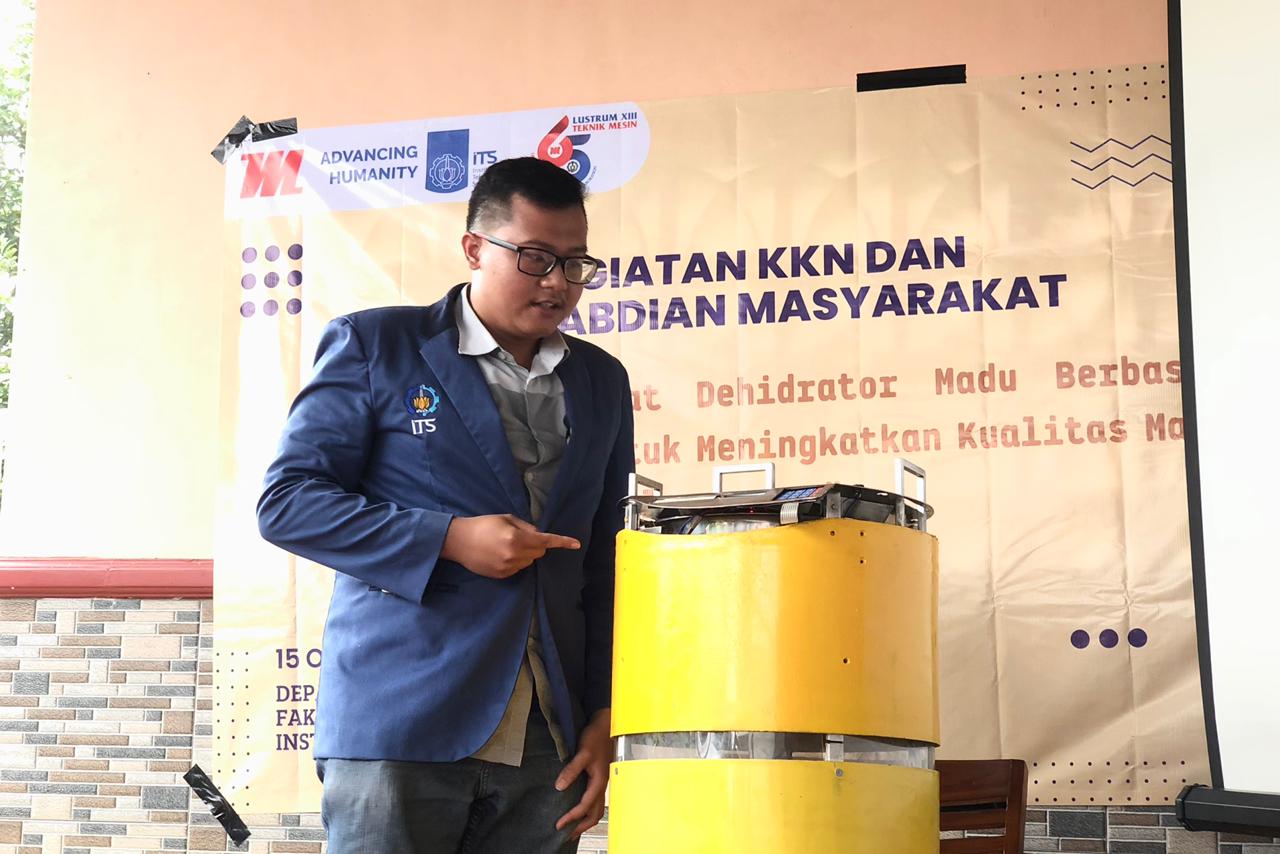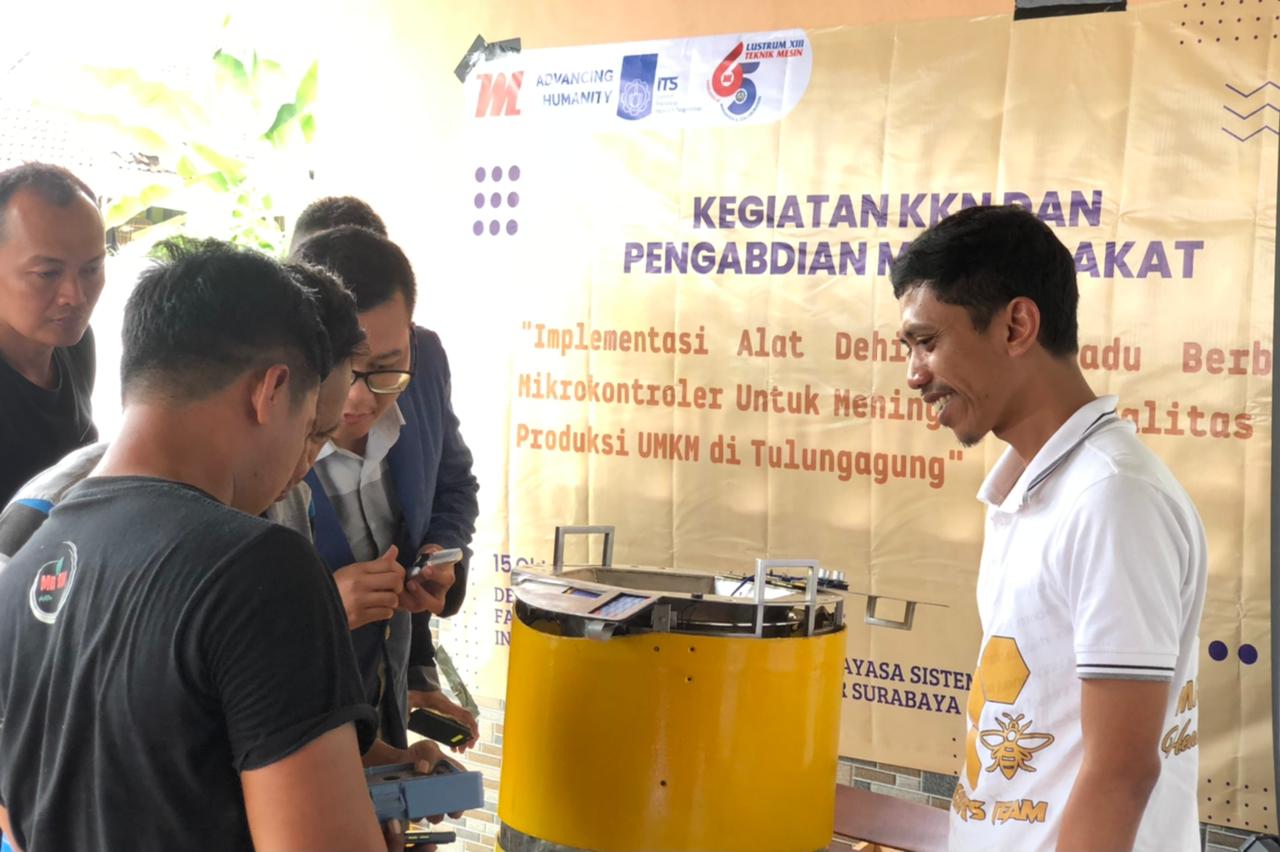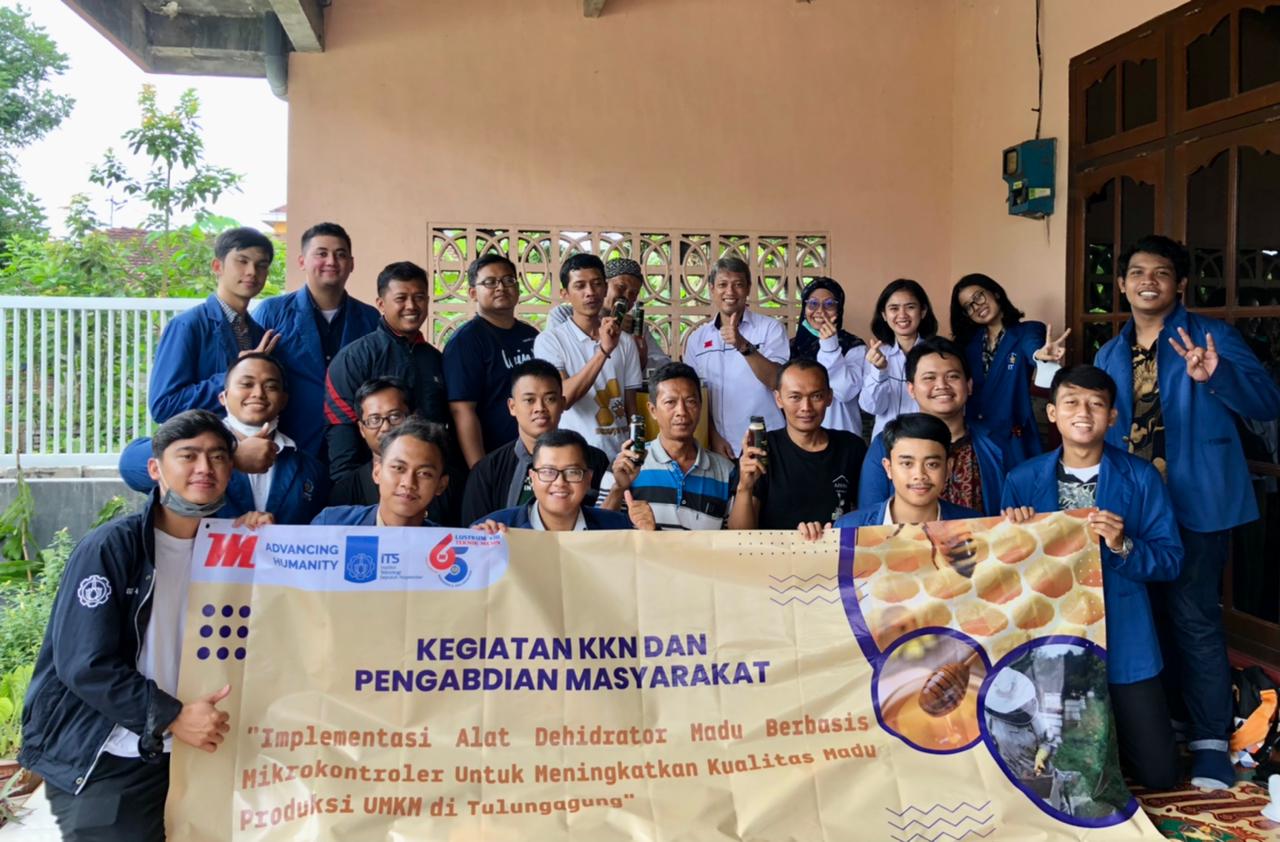KKN ITS Designs a Dewatering Tool to Improve The Quality of Honey UMKM

One of the student members of KKN Community Services (Abmas) ITS team while demonstrating the use of a honey dewatering tool to honey farmer partners in Tulungagung
ITS Campus News – KKN Community Services (Abmas) Opener Institut Teknologi Sepuluh Nopember (ITS) initiated the creation of a honey dewatering tool to advance Micro, Small and Medium Enterprises (UMKM) business. The tool which aims to reduce the water content of honey was handed over directly to the partner representatives on the last Saturday (15/10).
This KKN Abmas activity has also been carried out to help honey bee breeders SMEs in Kauman Village, Kauman, Tulungagung. The Team Leader of KKN Abmas ITS, Rafif Wirareswara, said that the high water content in honey produced by local honey farmer was one of the obstacles that made it unable to last longer after being packaged.
So far, most of honey harvest from local farmers has been given to larger industries to be processed and to make it more durable. “This certainly reduces the profits that can be obtained by farmers later on,” said the student of Department of Mechanical Engineering ITS.

Honey farmers’ enthusiasm in Tuluangagung when they tried to use a moisture reduction tool directly in honey designed by ITS KKN Community Services (Abmas) team
Rafif continued, his team also designed a dewatering tool to quickly reduce the water content and improve the quality of honey. Interestingly, this dewatering tool is equipped with an Arduino Microcontroller System which simplifies the machine automation process. “Using the tool is easier because with just a few clicks honey can be processed,” he explained.
The tool designed by the team has two modes of use, namely the mode of reducing moisture content or dehydration and the maintenance mode. In dewatering mode, the user first needs to measure the moisture content of the honey before putting it into the dewatering device. After the honey is put into the machine, the volume of the honey will be measured using an ultrasonic sensor and then the temperature will be measured using a thermocouple.
After experiencing a dehydration process in a relatively short time, this tool is able to produce honey with less water content. Even Rafif said, this electric-running tool can reduce the water content by up to 17 percent. After the tool is finished using, the user can run the maintenance mode to clean the machine.

ITS KKN Abmas Team who comes from Mechanical Engineering Department ITS with honey farmers in Kauman Village, Kauman, Tulungagung
Receiving a positive response from the local honey beekeepers, the class of 2019 student is very grateful because the tools that have been prepared since the beginning of this year are suitable for use by honey beekeepers in the production process. Even so, he revealed that his team is still continuing to improve the quality of the machine, especially in terms of safety and maintenance so that the dewatering tool can last a long time.
Later on, the KKN Abmas team which under the guidance of ITS lecturers such as Dinny Harnany, S.T., M.Sc., M Khoirul Effendi, S.T., M.Sc.Eng., Ph.D., and six more lecturers will also monitor the tool performance used by honey farmers in the village. “We are very open to carry out machine maintenance if our partners need it later,” said the student who is originally from Jakarta.
Representing 11 of his teammates, Rafif expects that the procurement of this honey dewatering device in the future will be able to open up opportunities for further technological development of the local honey industry sector. “Hopefully, within the ability to process their own honey, UMKM by honey farmers can be more developed,” he concluded optimistically. (ITS PR)
Related News
-
Supporting the Development of Material Processes, ITS Professors Utilize Biomass Waste
ITS Campus, ITS News — Innovation in material processes continues to develop to support society’s need for environmentally friendly
December 25, 2022 09:12 -
ITS Professor Ideas for Bio-Corrosion Control in Marine Structures
ITS Campus, ITS News — Coastal and offshore buildings interacting directly with seawater trigger damage, including bio-corrosion. If not
December 25, 2022 09:12 -
ITS Launches the First Marine Floating Solar Power Plant Prototype in Indonesia
ITS Campus, ITS News — Institut Teknologi Sepuluh Nopember (ITS)‘s commitment in realizing the energy transition is getting serious.
December 25, 2022 09:12 -
Targeting Champion, Bayucaraka ITS Launches Flying Robot Innovation
ITS Campus, ITS News – The Bayucaraka team at Institut Teknologi Sepuluh Nopember (ITS) has launched four new flying
December 25, 2022 09:12
